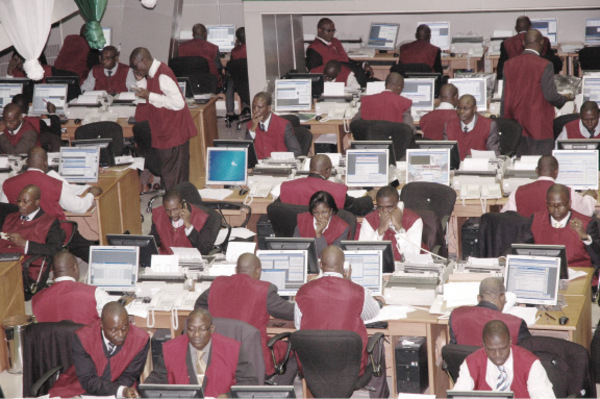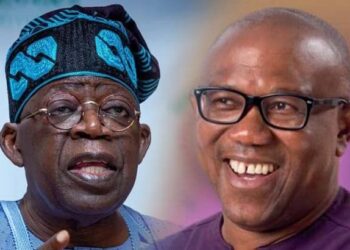metrobusinessnews.com analysis and investigative story
Oscar Onyema took over the leadership as the Chief Executive Officer of Nigeria Stock Exchange (NSE) in 2011, for a five year renewable term with a self imposed objective of achieving a $1 trillion market capitalisation.
Onyema, who is now in his second term had also in the past five years set other objectives such as “21st” century technology strategies, target-based business development efforts, strong regulation and supporting regulatory programmes, first-rate investor protection strategies and growth-enabling market structure.
Metrobusinessnews.com investigations showed that with less than five weeks to the end of 2016, market capitalisation is at N8.715trillion ($27.3billion) a mere 2.73 percent achievement against the targeted $1trillion (N400trillion) market-value target at the current conservative rate of N400/$. This is against N10trillion market capitalisation that he inherited in 2011. The year-to-date (Ytd) returns of the Nigerian bourse are in negative at 11.6 percent.
Indeed, as at last six years, the market recorded 93.33billion units of shares in volume of trades; value of trades were N797.55billion; and combined value of equities and fixed income market was put at about N10trillion –equities (N6.3trillion), and fixed income (N3.7trillion). Nigerian stock market posted N633.93billion month-to-date (MtD) loss as sentiments remain bearish.
Over the past five years (2011-2015), there have been 105 Initial Public Offerings (IPOs) by African companies on both African and international exchanges and non-African companies in African exchanges, raising $6.1billion, much of these deals did not happen in Nigeria, according to 2015 Africa Capital Markets Watch by PwC.
In South Africa’s Johannesburg Stock Exchange (JSE), market capitalisation has risen remarkably to $406.9billion on increased Initial Public Offerings (IPOs). Also, Kenya’s Nairobi Stock Exchange (NSE) market capitalisation has risen to $19.3billion. Historically, the Egypt Stock Market value has risen to $33.2billion and has yielded returns of about 61percent in 2016. Morocco which has about $51.5billion in market capitalization has also yielded a return of 17.7percent.
However, some analysts have identified some challenges ranging from widening golf in Naira exchange rate, the fall in crude oil price, and uncertainties resulting from Nigeria’s disappointing macroeconomic indices have caused remarkable selloff in the market, putting a stop to the trillion dollar market-value target. Others believe that the target was simply over ambitious without considering the dynamic operating environment.
As at third-quarter (Q3) to September 2016, the equities market capitalization was N9.74 trillion; while bonds market capitalisation was N6.78trillion. In Q3’2016, total value traded was N151.49billion; total volume traded was 18.51billion; average daily volume (Q3) was 303.48 million; and average daily value traded (Q3) was N2.48billion.
Despite the volatility in global equity markets, companies continue to be attracted to African markets, as demonstrated by the steady growth in first-time listings as compared to 2014. Africa Capital Markets Watch notes that in terms of volume, the Johannesburg Stock Exchange (JSE) saw a 33% increase in the number of IPOs as compared to 2014. 2015 was also a good year for the JSE’s Alternative Exchange (AltX), with an increase in listings value of more than double the previous year. Year 2015 saw a six-fold increase in the value of IPO activity on the Egyptian Exchange, though the bulk of these listings occurred during the first half of the year, against a backdrop of 5% anticipated economic growth and favourable price-to-earnings ratios across the market.
After three years with no IPO activity, the Rwanda Stock Exchange welcomed the IPO of the Bank of Kigali in a privatisation of governmental interest in the bank. In contrast, elsewhere on the continent, 2015 saw a major decrease in IPO capital raised on the Nigerian Stock Exchange and on the Bourse de Tunis as compared to 2014.
During 2015, 68% of total IPO volume transacted and 39% of total IPO value were raised on exchanges in sub-Saharan Africa (SSA), with the remainder made up by North Africa and outbound IPOs. The JSE remains a reliable anchor of African capital markets activity, ranking second in the world for exchange regulation and first for ease of raising debt or equity capital, according to the World Economic Forum’s Global Competitiveness Report 2015 – 2016.
Number of listed equities declined from 197 in 2014 to 190 in 2015; number of listed bonds increased from 52 to 60; number of listed Exchange Traded Product (ETPs) increased from 4 to 7; while number of listed securities increased from 253 in 2014 to 257 in 2015.
The latest inflation report from the National Bureau of Statistics (NBS) shows the ninth successive acceleration in the headline rate, to 18.3 percent year-on-year (y/y) in October from 17.9percent the preceding month.
“As for direct investment, participation is still low primarily due to forex volatility and Nigeria’s weak macroeconomic outlook. In Q3 2016, portfolio investments accounted for the largest component of imported capital at $920.32millio (51% of the total). Although portfolio equity declined by 28% relative to the previous quarter, this was outweighed by large increases in other types of portfolio investments,” the FBNQuest analysts said.
The outlook became further unattainable because despite recent improvement in trade volume, offer positions continued to outweigh bid positions, which made stocks value cheaper.
The $1trillion objective is no longer possible because of the current realities facing the bourse,
“Generally, foreign portfolio investors continue to remain on the sidelines. Relatively better participation was observed in fixed income compared with the equities market”, Gregory Kronsten-led team of analysts at FBNQuest said in their recent note.
The analysts observed that activities of both the market’s biggest buyers (foreigners) and that of domestic investors are decreasing; however the foreign activity is decreasing faster.
Nigeria’s stock market records show that total transactions at the bourse decreased further by 19.49 percent from N117.71 billion recorded in August 2016 to N94.77 billion (about $310million) in September 2016.
Also, total transactions from January to September 2016 decreased significantly by 40.59 percent from N1.560trillion recorded within the same period in 2015 to N927.08 billion in 2016.
The snapshot of Nigeria’s capital market as at December 20, 2010 showed the Nigerian Stock Exchange was powered by over 200,000 institutional investors and about 5 million retail investor accounts.
Nigeria’s Gross Domestic Product (GDP) contracted by 2.24 percent in the third-quarter. A slump in crude prices had led Nigeria’s economy to shrink by 2.06 percent in the second quarter, tipping it into recession for the first time in 25 years.
In view of this macro, and given the negative outlook on costs, analysts’ sentiment on most largely capitalised companies remains relatively dismal in the medium to long-term. From market capitalization of N9.9trillion as at 2010, the stock market has lost about N1.2trillion in 6 years to N8.715trillion in market capitalization.
Bismarck Rewane, MD/CEO, Financial Derivative Company while examining the markets at the recent Lagos Business School (LBS) executive breakfast meeting noted that the market is bedeviled by weak corporate earnings and surprising losses, adding that this is driven by switching and portfolio rotation to fixed income securities. “Weak corporate earnings will persist and suppress the stock market,” he said.
Chief Executive Officer, Oscar Onyema said early last year. The NSE had in it 2016 outlook said it will focus on executing its strategy in order to continue to provide a credible platform for financing the economy.
“To this end, we intend to intensify engagement efforts with the FGN. We have also prioritized three (3) initiatives –demutualise the NSE, monetize market services suite, establish derivatives market – for 2016 aimed at achieving the Exchange’s three strategic objectives of: increasing the number of new listings across five asset classes; increasing order flow in the five asset classes; and operating a fair and orderly market based on just and equitable principles.
Domestic transactions decreased by 16.98percent from N61.65 billion in August 2016 to N51.18 billion in September 2016. Also, Foreign Portfolio Investment (FPI) transactions decreased by 22.24 percent from N56.06 billion in August 2016 to N43.59 billion in September 2016.
Monthly foreign inflows outpaced outflows as foreign inflows decreased by 29.65 percent from N34.70 billion in August to N24.41 billion in September 2016. Foreign outflows also decreased by 10.21 percent from N21.36 billion to N19.18 billion within the same period.
“We believe that taking a portfolio approach to investing provides the best risk adjusted alternative for participating in the capital market. As such, we want to ensure that the NSE provides a repertoire of products that will allow investors to create well diversified portfolios of uncorrelated asset classes”, the CEO said early this year.
To further elevate and showcase high-performing Nigerian list companies, the NSE launched a Premium Board for large companies with the highest standards of corporate governance in 2015. Despite current bearish trends, the NSE’s Premium Board index grew by about 6 percent last month, compared to the NSE’s All-Share Index (ASI) negative return in excess of 10percent. The NSE All Share Index has also declined from 28,642.25 points as at fourth-quarter (Q4) 2015 to 25,318.41 points recorded Monday.
Uptick in Premium Board index reflects the appeal of this Board to investors, and affirms that strong, transparent and sustainable listed companies are important when developing a resilient market, analysts said.












